Hobbess Theory of the Will
Ideological Reasons
and Historical Circumstances
JRGEN OVERHOFF

ROWMAN & LITTLEFIELD PUBLISHERS, INC.
Published in the United States of America
by Rowman & Littlefield Publishers, Inc.
4720 Boston Way, Lanham, Maryland 20706
http://www.rowmanlittlefield.com
12 Hids Copse Road
Cumnor Hill, Oxford OX2 9JJ, England
Copyright 2000 by Rowman & Littlefield Publishers, Inc.
All rights reserved. No part of this publication may be reproduced, stored in a retrieval system, or transmitted in any form or by any means, electronic, mechanical, photocopying, recording, or otherwise, without the prior permission of the publisher.
British Library Cataloguing in Publication Information Available
Library of Congress Cataloging-in-Publication Data
Overhoff, Jrgen, 1967
Hobbess theory of the will : ideological reasons and historical circumstances / Jrgen Overhoff.
p. cm.
Includes bibliographical references and index.
ISBN 978-0-8476-9649-9
(pa. : alk paper)
1. Hobbes, Thomas, 15881679Contributions in the concept of will. 2. WillHistory17th century. I. Title.
B1248.W55.O84 2000
128'.3--dc21 99-045646
Printed in the United States of America
 The paper used in this publication meets the minimum requirements of American National Standard for Information SciencesPermanence of Paper for Printed Library Materials, ANSI/NISO Z39.481992.
The paper used in this publication meets the minimum requirements of American National Standard for Information SciencesPermanence of Paper for Printed Library Materials, ANSI/NISO Z39.481992.
To Kerstin
[Thomas Hobbes,] having in France been angered by some Divines, and having now a mind to return hither, hath chosen to make his way by this book [Leviathan], which some tell me takes infinitely among the looser sons of the Church,... , being indeed a farrago of all the maddest divinity that ever was read....
Henry Hammond, 1651, in [Anon.],
Illustrations of the State of the Church
during the Great Rebellion, Theologian and
Ecclesiastic, 9 (1850), 29495
Greater than the horror his strange kerygma arouses is the praise [Hobbes] deserves for not being blind and stupid in this matter but for his vision and knowledge. From the reverse standpoint it should be part of Christian vigilance to see and know what he saw and knew.
Karl Barth, 1961,
in The Christian Life: Church Dogmatics IV, 4:
Lecture Fragments, trans. by Geoffrey W. Bromiley
(Grand Rapids, Mich.: Eerdmans, 1981), 222.
Contents
Preface
A seminar on early modern political thought held at the Technische Universitt Berlin in 1989 provided the setting for my first serious encounter with the philosophical, political and theological ideas of Thomas Hobbes. In the course of the seminar we read and discussed large chunks of Leviathan, and whenever we were invited to comment on some of the key passages of that bulky book, we were most puzzled by the strange combination of scientific clarity and scornful rhetoric that gives this great piece of political philosophy its unmistakable profile and distinctive flavor. I admired the intellectual vigor with which Hobbes had erected his philosophical system, but at the same time I found his theological heterodoxy and his authoritarian stance on politics rather appalling. Consequently, I decided that Hobbess system of thought was not of very great appeal to me.
Three years after my initial encounter with Hobbess philosophy I enrolled as a graduate student at the London School of Economics and Political Science to study in the M.Sc. political theory course. I was supposed to study a selected text in political thought, and trying to avoid Hobbes, I thought it fitting to choose a class on John Locke instead. However, my favored option clashed with another obligatory seminar and, eventually, I found myself studying Hobbess Leviathan again, willy-nilly, as it were. One could easily count this as evidence for Hobbess theory of the universal determinism of all events. At any rate, this time I got hooked by Hobbess writings. Not only did I scrutinize Leviathan with increasing excitement and interest, I also read a wide variety of Hobbess other treatises and books. I began to take Hobbess concern with theology very seriously, and his political science seemed to me a very sophisticated attempt to solve the most pressing problems of seventeenth-century political thought. Trying to get a good grasp of the ideological premises of his political theory, I thought it a good idea to read Hobbess work from the vantage-point of his theory of the will. Thus I investigated in great detail both his theological and philosophical views concerning liberty, necessity and the issue of volition. This investigation became in 1993 the topic of my Ph.D. research at the University of Cambridge.
Throughout the past years many people have helped me to arrive at my present understanding of the thought of Thomas Hobbes. I should like to acknowledge my indebtedness to four scholars in particular. Above all I would like to acknowledge the debt I owe to my supervisor, Professor Quentin Skinner, for his major intellectual inspiration, critical guidance, and unfailing support that has made this work possible. I am further indebted to Professor Martin van Gelderen, who first introduced me to the history of political thought, and Professor Janet Coleman, who has been one of the inspirers of my research project and who has proved a constant source of stimulating debate. I would also like to thank Professor Dietrich Braun for important clarifications in my understanding of the most perplexing aspects of Hobbess theological doctrines.
My thanks also to Dr. Geoffrey Baldwin, Dr. Craig Muldrew, and Mr. Oleg Roslak for their thoughtful comments on earlier drafts of this book and for sharing many years of study in Cambridge.
Next I must thank the staff of the libraries I have consulted in Cambridge, London, Oxford, and Paris. I am particularly grateful to His Grace the Duke of Devonshire and the Trustees of the Chatsworth Settlement for permission to study the Hobbes manuscripts lodged at Chatsworth.
For their generous financial support during different stages of the four years of research for this book I am deeply grateful to the following funding bodies and institutions: the Airlift Memorial Fund and the British Council Berlin, the British Academy, the Archbishop Cranmer Fund, the Master and Fellows of Christs College Cambridge, the Board of Graduate Studies of the University of Cambridge, and the Prince Consort and Thirlwall Fund.
Last, but as always not least, I would like to thank my ever-patient wife, Kerstin, to whom I owe most of all, for her constant support, encouragement, and love throughout the period of this research.
Notes on the Text
BIBLIOGRAPHY
This is simply a checklist of the works actually quoted in the text. In the bibliography of printed primary sources I refer to anonymous works by title. Where a work was published anonymously but its authors name is known, I place the name in brackets. I have used modern critical editions where they are available. Otherwise I have made use of the editio princeps where possible, and failing that, the earliest or best subsequent edition.
PROPER NAMES
I have in all cases used the most familiar form, be it Latin, vernacular, or an anglicization.
TITLES
Titles of Greek works are given in their most familiar English form (for example, I speak of Aristotles



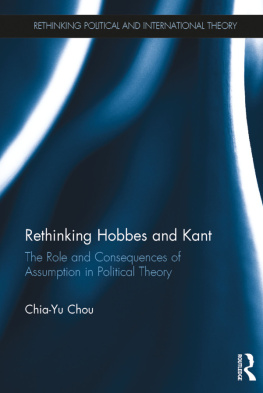
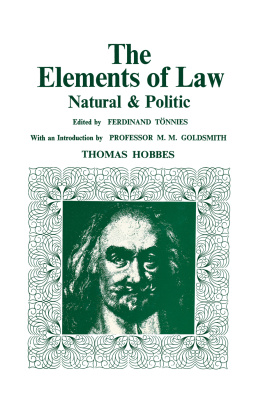
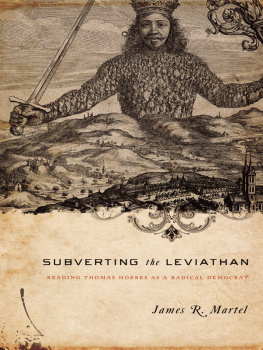
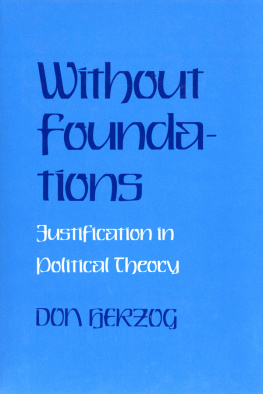


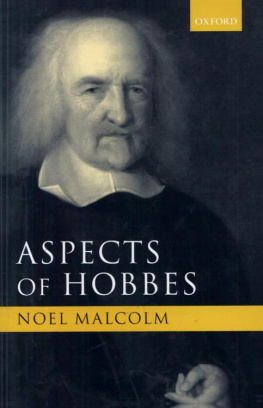

 The paper used in this publication meets the minimum requirements of American National Standard for Information SciencesPermanence of Paper for Printed Library Materials, ANSI/NISO Z39.481992.
The paper used in this publication meets the minimum requirements of American National Standard for Information SciencesPermanence of Paper for Printed Library Materials, ANSI/NISO Z39.481992.